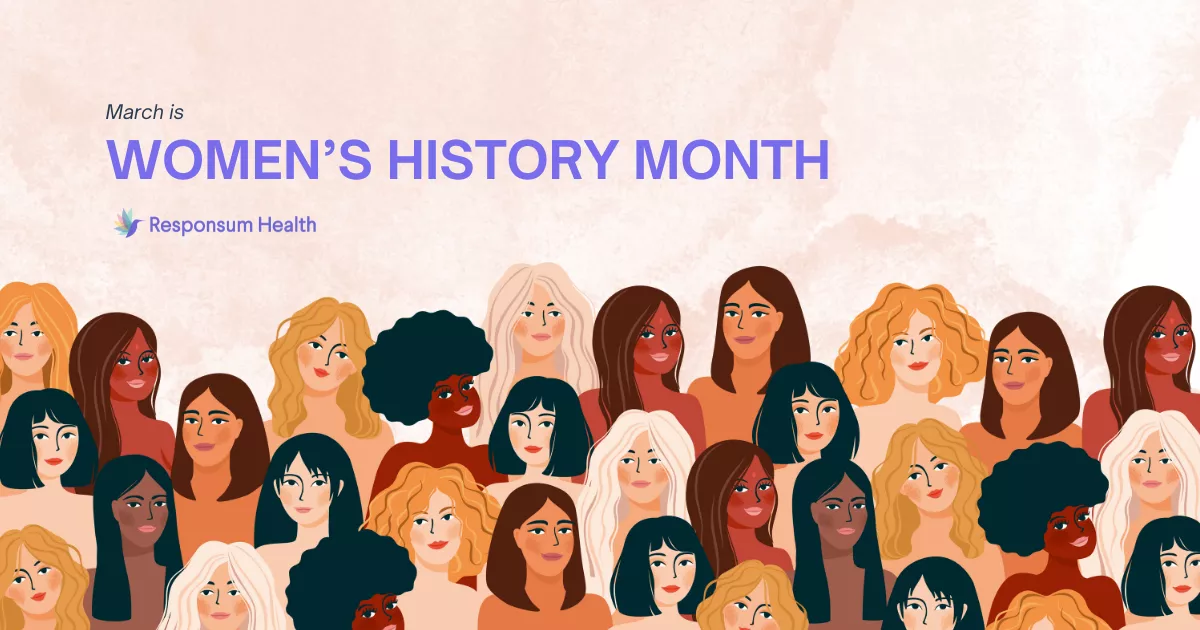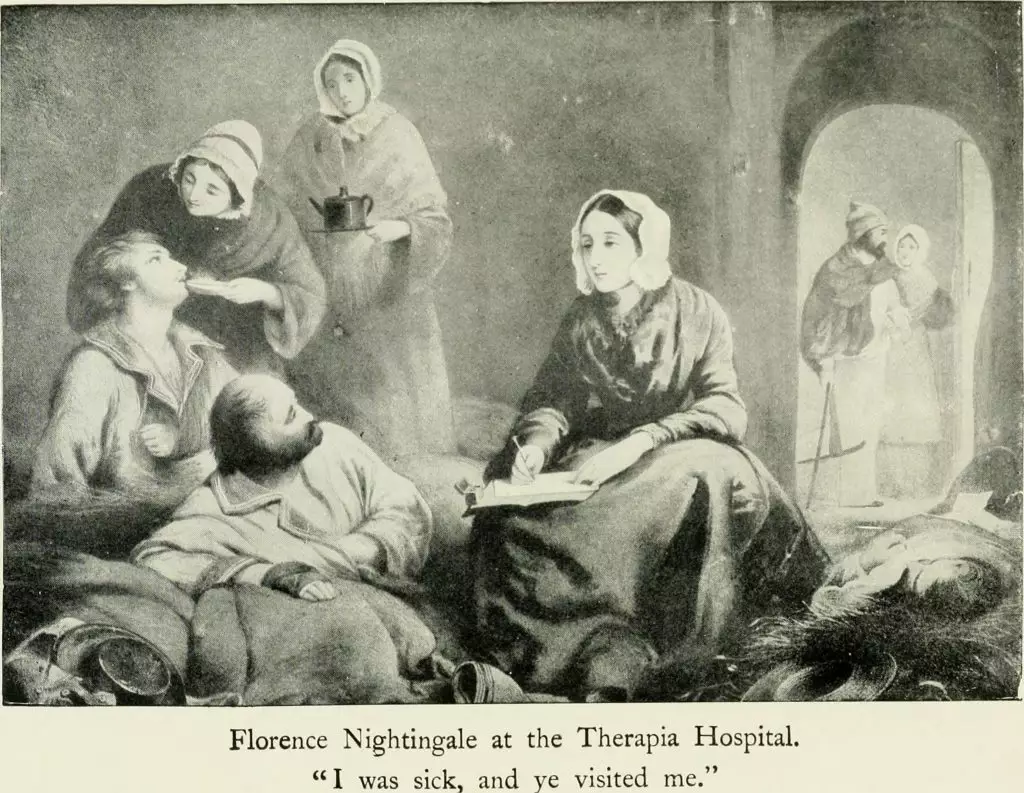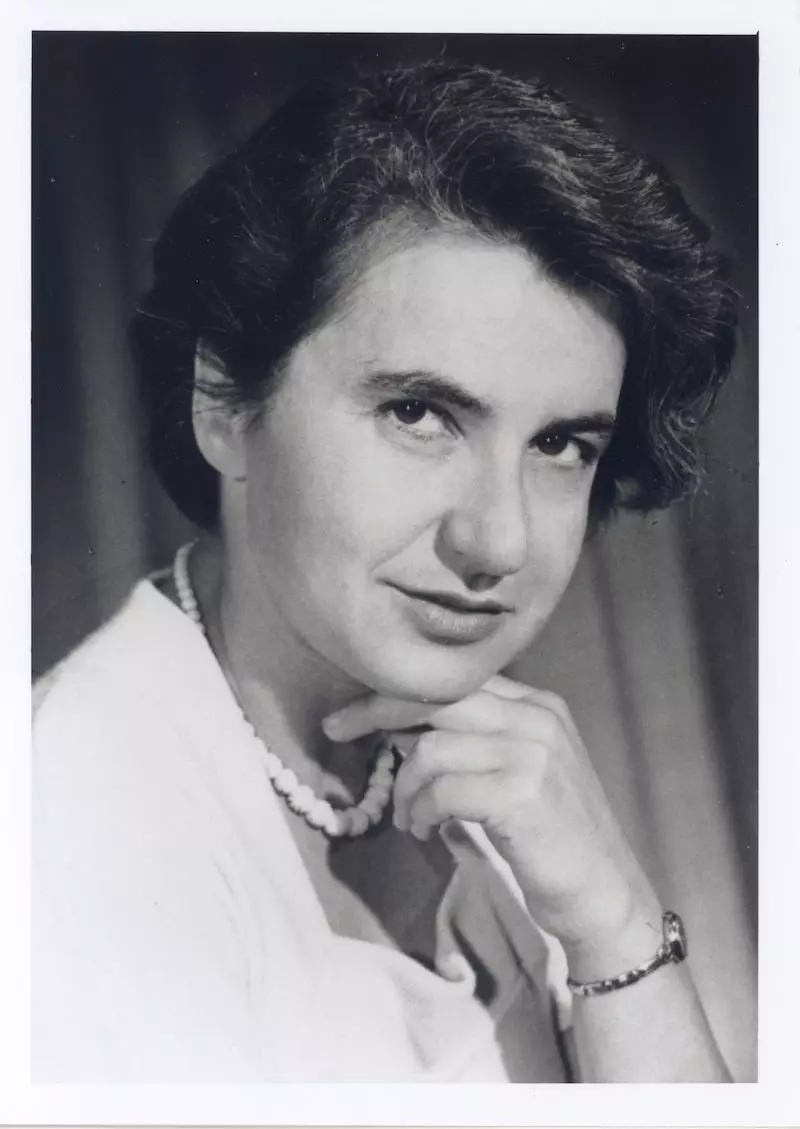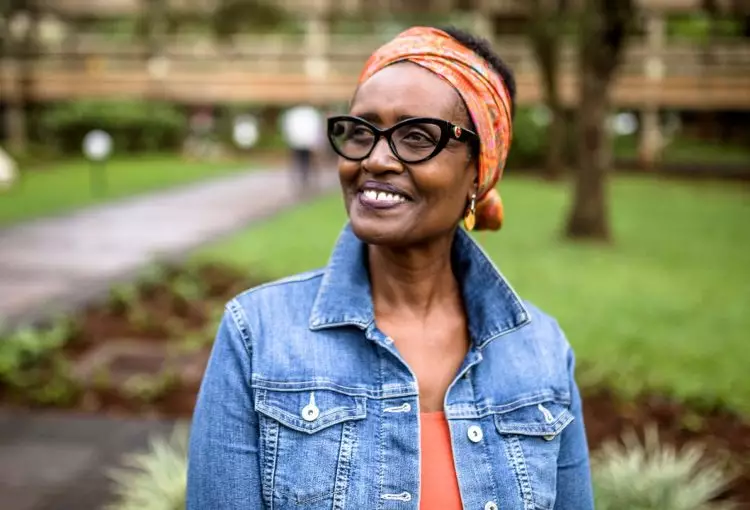
Celebrating Women’s Enduring Legacy and Leadership in Healthcare and Public Health
In the annals of history, women have stood as towering figures, shaping the landscape of healthcare and public health with their vision, resilience, and groundbreaking contributions. From the early pioneers who shattered barriers, to contemporary leaders driving medical research and policy, their stories are woven into the fabric of progress in this country.
This Women’s History Month, we at Responsum Health are celebrating the transformative impact that women have had on healthcare and public health throughout U.S. history. Learn about some of the trailblazing female leaders whom we have to thank for many of the innovations from which we have long benefited, as well as those who continue to drive us forward toward more equitable healthcare and outcomes for all.
Pioneers of Progress

(Florence Nightingale illustration. Image from Wikimedia Commons)
Names like Florence Nightingale and Clara Barton are synonymous with compassion and service. Florence Nightingale, hailed as the founder of modern nursing, revolutionized healthcare practices during the Crimean War, demonstrating the pivotal role of nursing in saving lives and improving patient outcomes. Similarly, Clara Barton’s founding of the American Red Cross established a cornerstone of humanitarian aid, providing relief to countless individuals in times of crisis.
But the journey toward progress was not without its obstacles. Early figures like Mary Eliza Mahoney, the first African American licensed nurse, Elizabeth Blackwell, the first woman to receive a medical degree in the United States, and Dr. Susan La Flesche Picotte, the first Native American woman to earn a medical degree, faced systemic barriers and societal prejudices. Yet, through their determination and persistence, they paved the way for future generations, challenging the status quo and redefining the possibilities for women in healthcare.
Championing Change

Rosalind Franklin (Image credit: National Institute of Health.)
Certain women’s contributions transcended the scientific and political confines of their time. Dr. Rosalind Franklin’s critical work on DNA laid the foundation for our understanding of genetics, and the realm of public health policy saw the emergence of leaders like Representative Shirley Chisholm, whose advocacy in Congress expanded access to healthcare services and championed the rights of marginalized communities. These women’s tireless efforts in the halls of power brought about transformative change, dismantling barriers to healthcare and fostering a more inclusive and equitable society.
Innovation and Inspiration
As we transition to the present day, we are inspired by contemporary figures who continue to push the boundaries of innovation and leadership in healthcare. Dr. Patricia Bath‘s groundbreaking inventions in ophthalmology and Dr. Kizzmekia Corbett‘s pivotal role in developing the COVID-19 vaccine stand as testament to the indomitable spirit of women in medical research.
Their achievements not only reflect the diverse perspectives they bring to the table but also underscore the vital importance of representation in spurring progress within the field. Quotes from these remarkable women, such as Dr. Helen Rodríguez-Trías‘s impassioned declaration that “Healthcare is a human right, not a privilege to be purchased,” resonate with the ongoing struggle for healthcare equity and justice. Dr. Rodríguez-Trías was the first Latina director of the American Public Health Association, and a fierce advocate for women’s reproductive rights.
A Tapestry of Diversity
In celebrating the contributions of these extraordinary women, it is imperative to embrace diversity in all its forms. From Dr. Antonia Novello, the first female and Latina appointed as U.S. Surgeon General, to Elouise Cobell‘s tireless efforts in improving access to healthcare for Native American communities, their stories illuminate the interconnectedness of health, policy, and social justice.
The inclusion of Dr. Chien-Shiung Wu‘s groundbreaking work in nuclear physics, underscores the wide-reaching impact of women working at the intersection of science, technology, and healthcare, transcending cultural and disciplinary boundaries. Like many women before her, Dr. Chien-Shiung Wu was not officially recognized for all her contributions. By weaving together these diverse narratives, we honor not only the individual achievements of these women but also the collective impact of their voices and perspectives on shaping the future of healthcare and public health.
Contemporary Healthcare Challenges and Innovators
Women continue to play a vital role in addressing today’s healthcare challenges, from public health crises to technological innovations and policy reforms, positively impacting such areas as:
- Digital health innovation,
- Global health initiatives, and
- Mental health advocacy.
Taking the lead in digital health tech are such women as Dr. Maria Artunduaga, a biomedical engineer and the founder and CEO of a medical technology company that developed a wearable device to monitor lung function in people with chronic respiratory diseases, and Dr. Iya Khalil, co-founder and Chief Commercial Officer of a precision medicine company that uses AI and machine learning to develop personalized treatment plans from complex healthcare data.

Winnie Byanyima (Image credit: Empower Africa)
One woman at the forefront of addressing contemporary global healthcare challenges is Winnie Byanyima. The Executive Director of UNAIDS and an Under-Secretary-General of the United Nations (UN), Byanyima has long been an advocate for those living in poverty, and a champion of social justice and gender equality. She currently heads the UN’s Nations’ efforts to eliminate AIDS by 2030.
In the realm of mental health, we can highlight the work of Dr. Alfiee Breland-Noble, an African American psychologist and founder of the AAKOMA Project, which focuses on mental health advocacy for young people and communities of color. Her work emphasizes the importance of culturally competent care and the need to de-stigmatize mental health issues.
Going Forward
As we look to the future, it is clear that supporting women in healthcare and public health is about investing in the potential for even greater advancements. Encouraging diverse leadership, fostering inclusive research and policy-making environments, and addressing systemic barriers to equality are essential steps in ensuring that the next generation of women healthcare leaders can thrive.
Women are not only continuing the legacy of their predecessors but also blazing new trails in healthcare and public health. Their leadership and innovations are addressing some of the most pressing healthcare challenges of our time, driving progress, and shaping a healthier future for all.
During Women’s History Month 2024 and beyond, let us heed the lessons of these trailblazers and strive to amplify the voices of women in healthcare and public health, ensuring that their enduring legacy remains an integral part of our shared narrative of progress and possibility.

